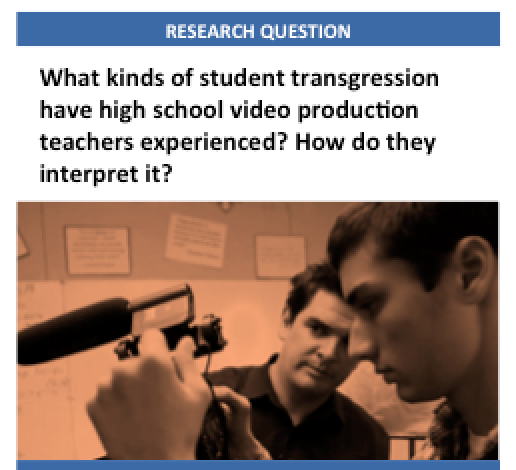When adolescent students have the freedom to use digital media to create, communicate and disseminate messages in the context of the classroom, transgression may occur.
Paper presented at the International Communication Association conference, San Diego, May 26, 2017
By Renee Hobbs

Pedagogical theories of participatory culture, art education, and digital and media literacy education provide an interpretive frame to explore transgression in the context of student creative expression. Using email interviews with four experienced high school media educators, this study examines how educators perceive school situations where behavior or student media work products disrupt or transgress expectations.Teachers experience student transgression as an essential dimension of the dialectic between creative freedom and creative control. They perceive creative control to be a negotiation between students and teachers on issues of content, format, production and distribution processes. Teachers conceptualize the distinctions between students who (1) use transgression as a form of expressive creativity; (2) reproduce the tropes of mass media and popular culture; (3) are simply novices making mistakes as part of learning; (4) attempt to gain social power and status among their peers; or (5) aim to challenge adult authority as well as school and social norms.Teacher reflection on the dialectic between creative control and creative freedom may inform the design and implementation of media production learning experiences in the context of the high school classroom.